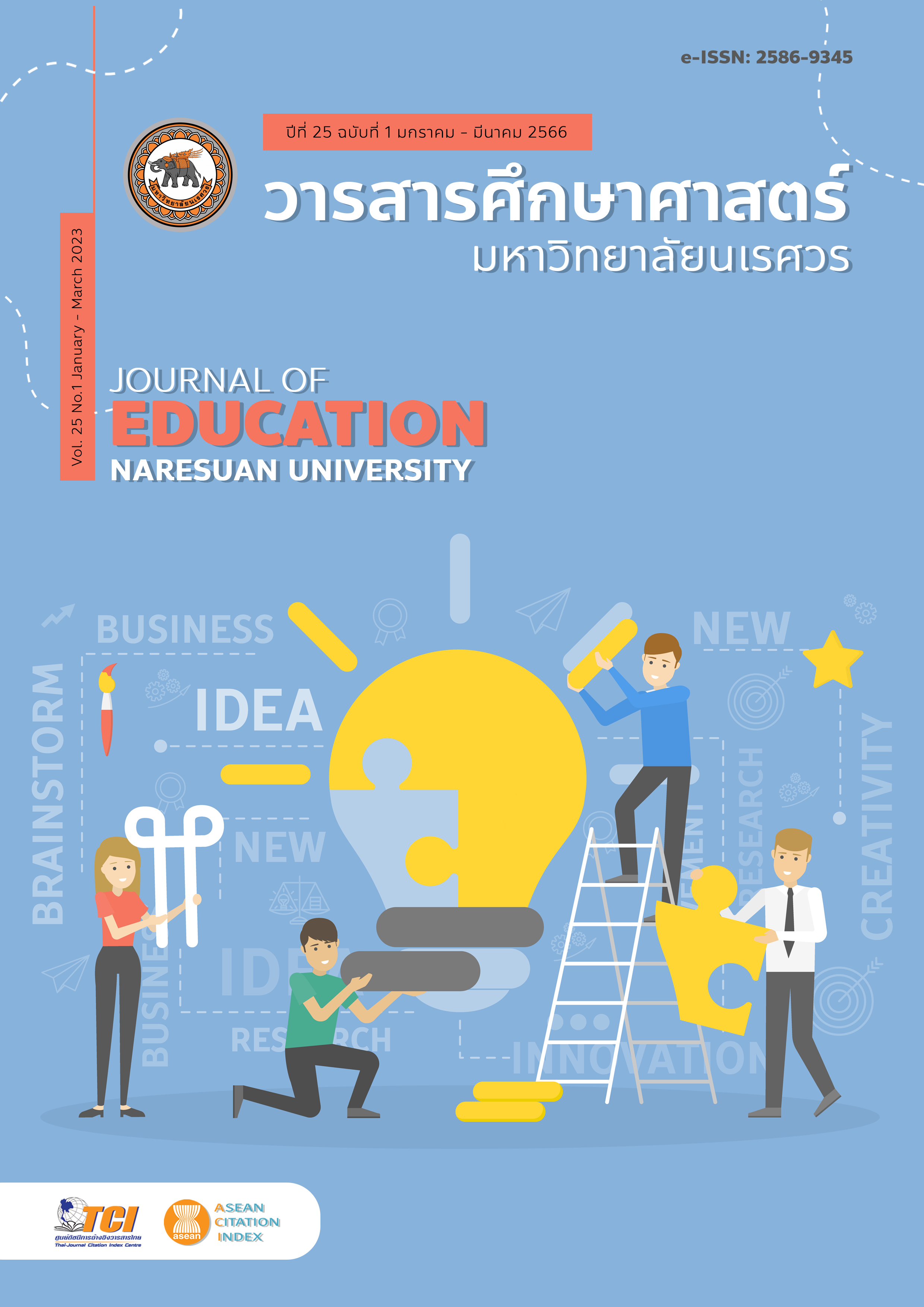USING PRINCIPAL COMPONENT REGRESSION ANALYSIS TO EXPLORE PROFESSIONAL COMPETENCE OF MATHEMATICS TEACHERS
Main Article Content
Abstract
Professional competence of secondary mathematics teachers is measured in terms of cognitive abilities and affective-motivational characteristics. There are many items which attribute to cognitive abilities and affective-motivational characteristics of teachers. Thus, this study wanted to reduce these items into components using principal component analysis. From the extracted components, develop a model using principal component regression. This study employed multi-stage cluster sampling where secondary mathematics teachers are clustered according to the municipal level, division, and school. Simple random sampling was used to determine clusters. Results showed that the kaiser-meyer-olkin yield good result and bartlett’s test for sphericity are significant, which implied that it already suits to test for principal component analysis. Findings showed that there were 27 extracted components and from these components have component loadings less than 0.300; thus, they need to be eliminated. The components with component loadings greater than 0.300 are used in principal component regression. The model generated yielded two insignificant regressors.
Article Details

This work is licensed under a Creative Commons Attribution-NonCommercial-NoDerivatives 4.0 International License.
The owner of the article does not copy or violate any of its copyright. If any copyright infringement occurs or prosecution, in any case, the Editorial Board is not involved in all the rights to the owner of the article to be performed.
References
Ball, D. L., Lubeinski, S., & Newborn, D. (2001). Research on teaching mathematics: The unsolved problem of teachers’ mathematical knowledge. In V. Richardson (Ed.), Handbook of research on teaching (pp. 433-456). New York, NY: Macmillan.
Ball, D. L., Thames, M. H., & Phelps, G. (2008). Content Knowledge for Teaching: What Makes It Special? Journal of Teacher Education, 59(5), 389–407. https://doi.org/10.1177/0022487108324554
Baumert, J., Kunter, M. (2013). The Effect of Content Knowledge and Pedagogical Content Knowledge on Instructional Quality and Student Achievement. In: Kunter, M., Baumert, J., Blum, W., Klusmann, U., Krauss, S., Neubrand, M. (eds) Cognitive Activation in the Mathematics Classroom and Professional Competence of Teachers. Mathematics Teacher Education, vol 8. Springer, Boston, MA. https://doi.org/10.1007/978-1-4614-5149-5_9
Bland, J. M., & Altman, D. G. (1997). Statistics notes: Cronbach's alpha. BMJ, 314, 572. doi: https://doi.org/10.1136/bmj.314.7080.572
Blömeke, S., & Delaney, S. (2012). Assessment of teacher knowledge across countries: A review of the state of research. ZDM: the international journal on mathematics education, 44(3), 10.1007/s11858-012-0429-7
Blomeke, S., Suhl, U., Kaiser, G., & Dohrmann, M. (2012). Family background, entry selectivity and opportunities to learn: What matters in primary teacher education? an international comparison of fifteen countries. Teaching and Teacher Education, 28(1), 44-55.
Department of Science and Technology. (2011). Science Education Institute Framework for Philippine Mathematics Teacher Education. Manila: Philippine Council of Mathematics Teacher Education (MATHTED).
Döhrmann, M., Kaiser, G., & Blömeke, S. (2012). The conceptualisation of mathematics competencies in the international teacher education study TEDS-M. ZDM, 44, 325-340.
Epstein, R. M., & Hundert, E. M. (2002). Defining and assessing professional competence. JAMA: Journal of the American Medical Association, 287(2), 226–235. https://doi.org/10.1001/jama.287.2.226
Glen, S. (2016). Kaiser-Meyer_Olkin (KMO) test for sampling adequacy elementary statistics for the rest of us! Retrieved from https://www.statisticshowto.com/kaier-meyer-olkin/
Hill, E. J., Jacob, J., Shannon, L., & Brennan, R.T. (2008). Exploring the Relationship of Workplace flexibility, gender, and life stage to family-to-work conflict, and stress and burnout. Community Work and Family, 11(2), 165-181. doi:10.1080/13668800802027564
Kane, M. T. (1992). The assessment of professional competence. Evaluation & the Health Professions, 15(2), 163-182. doi:10.1177/016327879201500203
Kunter, M., Baumert, J., Klusmann, U., & Richter, D. (2013). Professional competence of teachers: Effects of instructional quality and student development. Journal of Educational Psychology, 105(3), 805–820. https://doi.org/10.1037/a0032583
Rahn, M. (n.d.) Factor analysis: A short introduction. Part 5-Dropping Unimportant Variables from Your Analysis The Analysis Factor.
Sengottuvel, A., & Aktharsh, U. (2015). Teacher effectiveness and professional competency in school education. International Journal of Management, 6(1), 181-190.
Shulman, L. (1987). Knowledge and teaching: foundations of the new reform. Harvard Educational Review, 57(1), 1-23.
Southeast Asian Ministers of Education Organization. (2010). Teaching competency standards in southeast Asian countries eleven country audit. Philippine: SEAMEO INNOTECH.
Weinert, F. E. (2001). Concept of competence: A conceptual clarification. In D. S. Rychen, & L. H. Salganik (Eds.), Defining and Selecting Key Competencies (pp. 45-65). Seattle, WA: Hogrefe and Huber Publishers.


